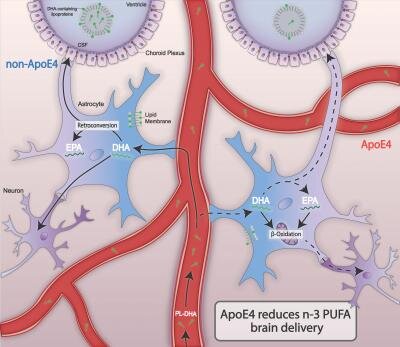For years, a scientific puzzle has bedeviled researchers aiming to fight Alzheimer’s disease, a common and incurable form of dementia.
The results of numerous lab investigations and population studies support the preventive potential of omega-3 fatty acids, “good fats” found abundantly in fish. However, to date the majority of studies evaluating omega-3s for averting or curtailing cognitive decline in human participants have failed to show benefits.
Now, a small clinical trial from USC provides important clues about this discrepancy, in the first Alzheimer’s prevention study to compare levels of omega-3s in the blood with those in the central nervous system. The findings suggest that higher doses of omega-3 supplements may be needed in order to make a difference, because dramatic increases in blood levels of omega-3s are accompanied by far smaller increases within the brain. Among participants who carry a specific mutation that heightens risk for Alzheimer’s, taking the supplements raised levels of a key fatty acid far less compared to those without the mutation.
“Trials have been built on the assumption that omega-3s get into the brain,” said senior author Dr. Hussein Yassine, associate professor of medicine and neurology at the Keck School of Medicine of USC. “Our study was specifically designed to address this question.”
The paper was published today in the journal EBioMedicine.
The researchers recruited 33 participants who had risk factors for Alzheimer’s but were not cognitively impaired. All participants had…



